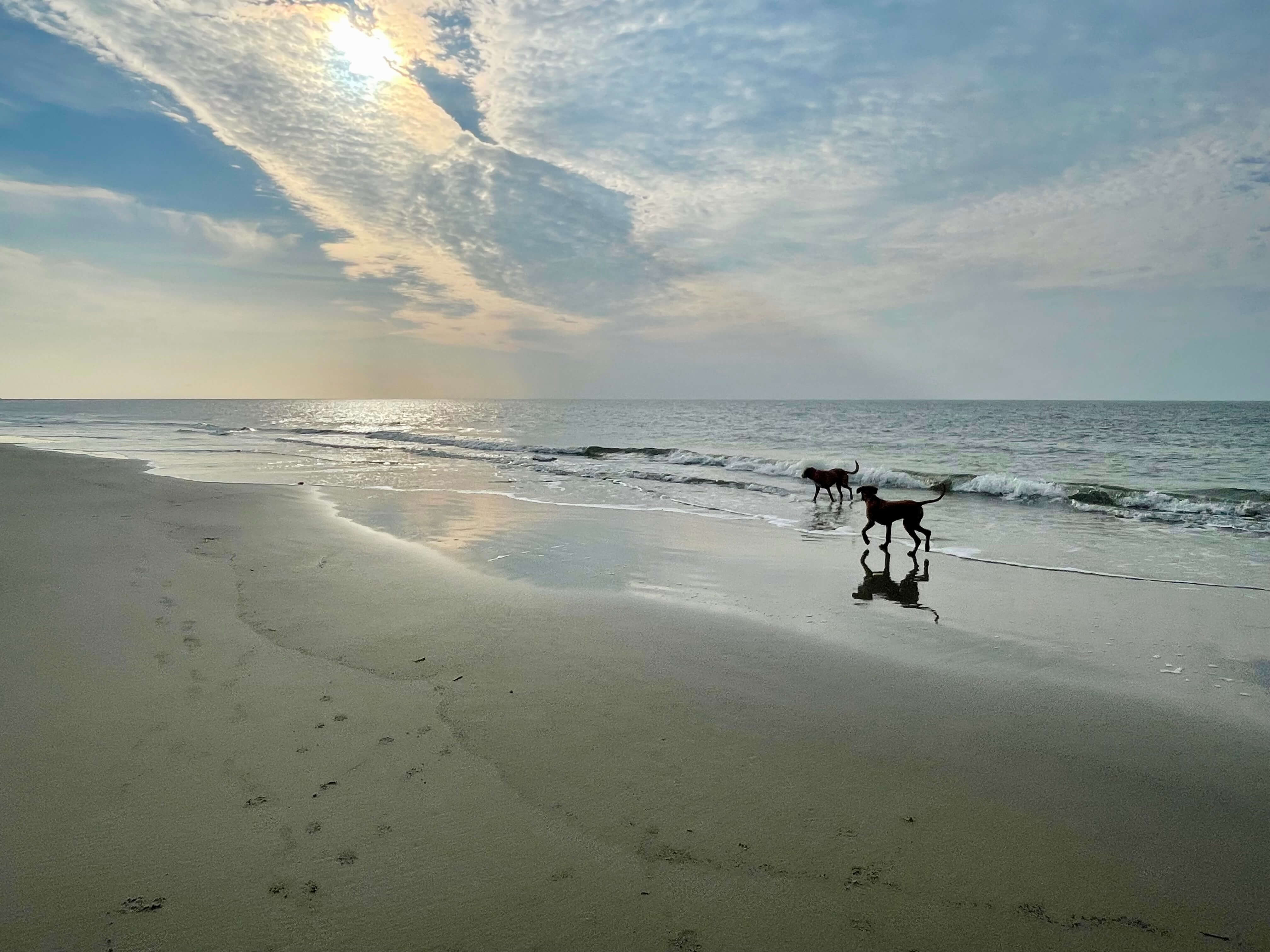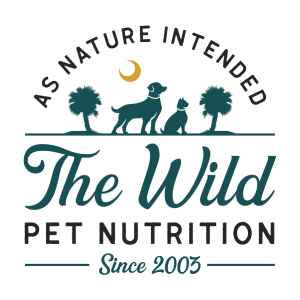A Decade of Recalled Pet Foods: What The Numbers Reveal

Our mission here at The Wild is to provide you with pet foods that are not only safe for your beloved furry family members, but which are vital, nutritious and will contribute to their overall health, longevity and quality of life. We expend great time and energy on researching products that meet our high standards and goals in serving this purpose. That is why you will only find foods in our stores that are completely free of corn, wheat, soy, chemical preservatives, unnamed by-products, dyes, or other artificial and biologically inappropriate ingredients for pets. We believe in feeding our pets a diet that mimics, as closely as possible, what they would naturally eat as carnivores in their original habitat: the wild. The further their diets stray from these fundamental requirements of quality, fresh animal-based protein and fats, and the more processed they become, the more issues we see arise in their health and well-being.
Unfortunately, not all pet food manufacturers share this goal or these standards for pet nutrition and that is why we believe it is so important to do the research we do and provide the information and education that we provide. High-heat processed, mass produced foods often contain ingredients that are nutritionally deplete, at best, and downright harmful, at worst. In the worst case scenarios, these foods can result in widespread recalls.
But what foods are being most commonly recalled and why? The answer may not be what you think. Some consumers believe that fresh and raw food diets are the riskiest foods to feed. But the stats reveal something very different.
To shed some light on this issue, we’ll start by listing the Top 5 Recalled Foods from August 2012 – August 2020, the amount of food recalled and the reason listed for the recall.
-
Mars Petcare comes in at #5 with a total of 1,812,803 pounds of pet food recalled. Mars includes 50+ brands of pet food including Pedigree, Iams, Royal Canin, Eukanuba, Ol Roy dry, Whiskas, Nutro, Sheba, and Cesar. The Mars recalls were for:
- Potential choking risk in food (unspecified)
- A formulation error resulting in insufficient levels of vitamins and excess minerals
- Bags potentially containing small metal fragments which may have entered packaging during the production process
-
Nestle Purina comes in at #4 with 4,886,521 pounds of pet food recalled. Nestle Purina includes such brands as Purina Pro Plan, Purina Dog Chow, Beneful, Purina One, Alpo, Fancy Feast, and Friskies. The Nestle recalls were for:
- Low levels of thiamine (Vitamin B1)
- A bag found to be contaminated with salmonella
- Product potentially containing less vitamins and minerals than label claims
-
Hill’s Pet Food comes in at #3 with 6,329,086 pounds of recalled pet food. Hill’s Pet Food makes a variety of “specialty” and “prescription” food diets for dogs and cats. Their labels all fall under Hill’s Science Diet, Hill’s Prescription Diet, Hill’s Healthy Advantage, and Hill’s Bioactive Recipe. The Hill’s recalls were for:
- Dry dog food potentially contaminated with salmonella
- A voluntary canned food recall due to potentially elevated levels of Vitamin D
-
Diamond Pet Foods comes in at #2 with 24,781,468 pounds of pet food recalled. Diamond brands include Diamond, Diamond Naturals, Taste of the Wild (this one always makes us laugh since nothing can be further from “the wild”), 4Health, Kirkland, and Natural Balance dry. Their recalls were for:
- Product potentially contaminated with salmonella
-
Smucker’s takes the #1 spot with a whopping 92,102,195 pounds of pet food being recalled. Smuckers makes such brands as Rachael Ray Nutrish, Nature’s Recipe, 9Lives, Meow Mix, Gravy Train, Kibbles ‘n Bits, and Milo’s Kitchen. These foods were recalled for:
- Possible low levels of thiamine (Vitamin B1)
- Minor ingredient may contain low levels of pentobarbital (a drug used for veterinary euthanasia which indicates the use of animal ingredients that should not be found in pet food)
Then, between September 2020 and January 2021, another 60 million pounds of dog food were recalled by Sunshine Mills and Midwestern Pet Food due to aflatoxin contamination. The World Health Organization website explains, “Aflatoxins are poisonous substances produced by certain kinds of fungi (molds) that are found naturally all over the world; they can contaminate food crops and pose a serious health threat to humans and livestock.” One of the primary crops known to carry and contain aflatoxins is corn, but it can also come from other improperly stored tree nuts and grains where moisture remains present in the harvested crops once stored which creates a favorable environment for the mold to grow. This is one of the lesser known, but equally important, issues with mass-produced, irresponsibly sourced dry pet foods containing grains.
As you can see, pet food recalls can range from mishandling to mislabeling to downright dangerous (and potentially fatal) ingredients, or ingredient levels, in the product. Interestingly, these are the same companies and manufacturers who are often the first to disclaim fresh and biologically appropriate diets, such as commercially prepared raw food diets, as risky to feed. The number one argument against fresh, raw food diets by these companies and their supporters is the fear of the raw ingredients containing potentially harmful bacteria, such as salmonella. And yet, these highly processed, commercially produced dry food diets have on many occasions been found to contain the bacteria salmonella among other toxins.
Looking at recall records, kibble is 75 times more likely to be recalled than fresh, raw food for pets. This is in part due to the fact that raw pet food producers take many safety precautions when making their food, including using high quality ingredients. In one FDA study, only 8% of raw pet food samples tested positive for salmonella. To put this into perspective, the USDA allows 25% of all ground poultry products sold in grocery stores (yes, this is human food we’re talking about) to contain salmonella. Raw pet food far exceeds these safety standards as it is 3x safer than getting poultry products for yourself at the grocery store.
Looking at the recalls from 2020 reveals that raw pet food is statistically safer than kibble, as well. According to the FDA 1,378,725 pounds of kibble were recalled in 2020 (BEFORE the millions of pounds of aflatoxin tainted pet food recalls that began in September), while only 1,942 pounds of raw pet food were recalled. That means kibble was recalled 710 times more often than raw.
While recalling product is certainly the responsible thing to do if there is any chance of dangerous or contaminated ingredients, every precaution should be made at the forefront to prevent this from happening. The most recent recall due to aflatoxin contamination is just the latest example of poorly produced food that did NOT take the necessary steps to ensure the safety of this mass produced and highly processed pet “food.” The foods we carry at The Wild are produced by companies who share our standards and who go to great lengths to ensure their finished product is as safe and healthy as possible for our pets. As always, we continue to research and bring in only the best options for your pets while monitoring the quality, transparency, sourcing and manufacturing practices of the companies we currently carry. For help in choosing the right diet for your pets, come in and speak with any of our certified Pet Food Nutrition Specialists.
References
- https://www.who.int/foodsafety/FSDigest_Aflatoxins_EN.pdf
- https://truthaboutpetfood.com/fdas-raw-pet-food-phobia/
- https://truthaboutpetfood.com/60-million-pounds-of-aflatoxin-contaminated-pet-food-were-recalled-in-just-4-months/
- https://truthaboutpetfood.com/the-top-5-manufacturers-of-recalled-pet-food/
- https://www.animalhealthfoundation.net/blog/category/pet-food-recalls/


